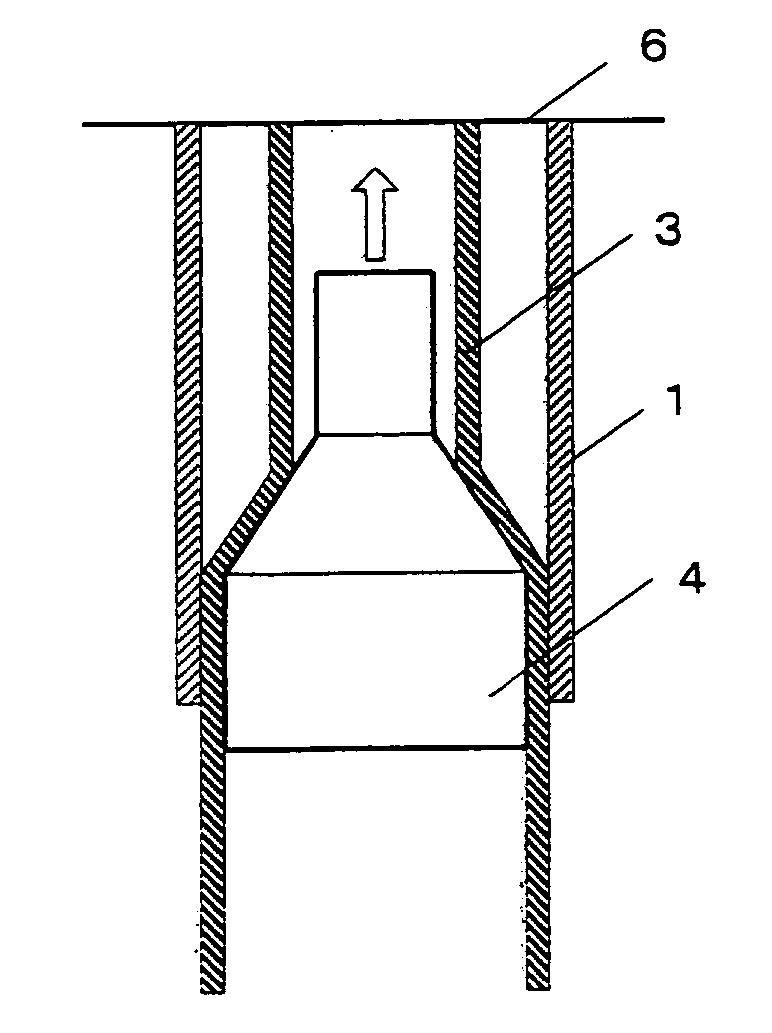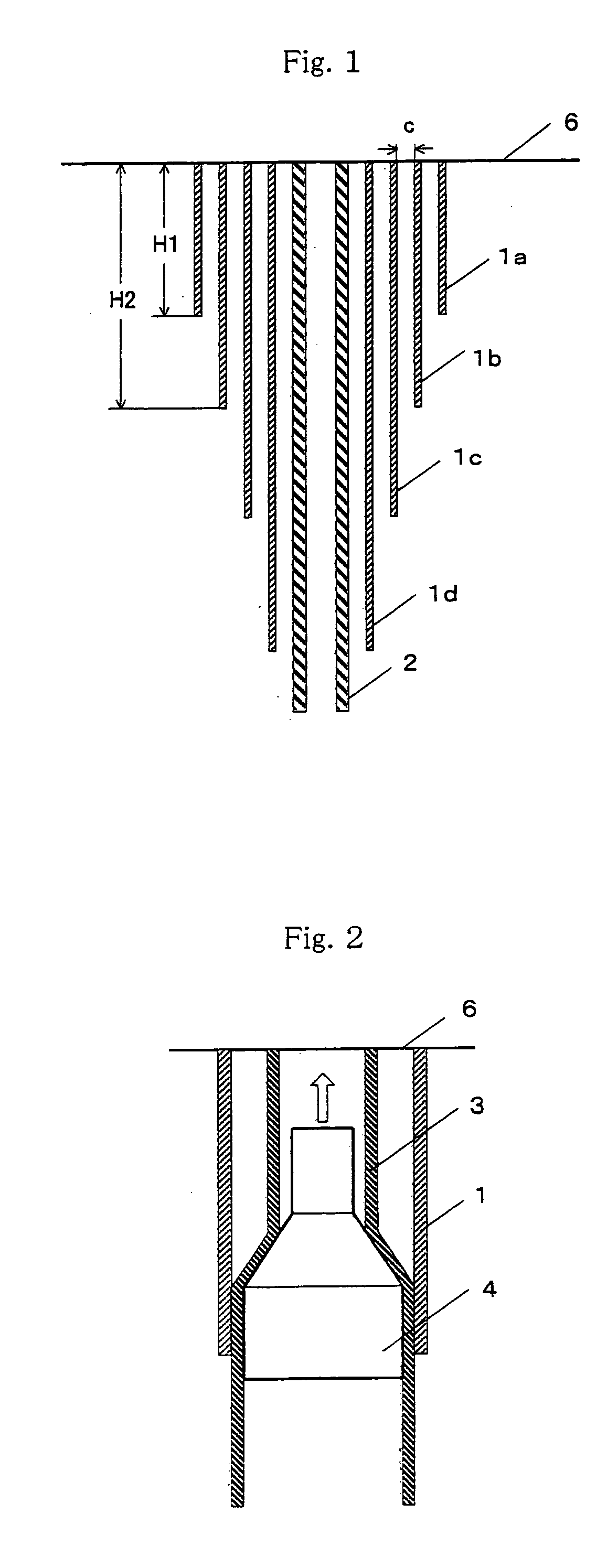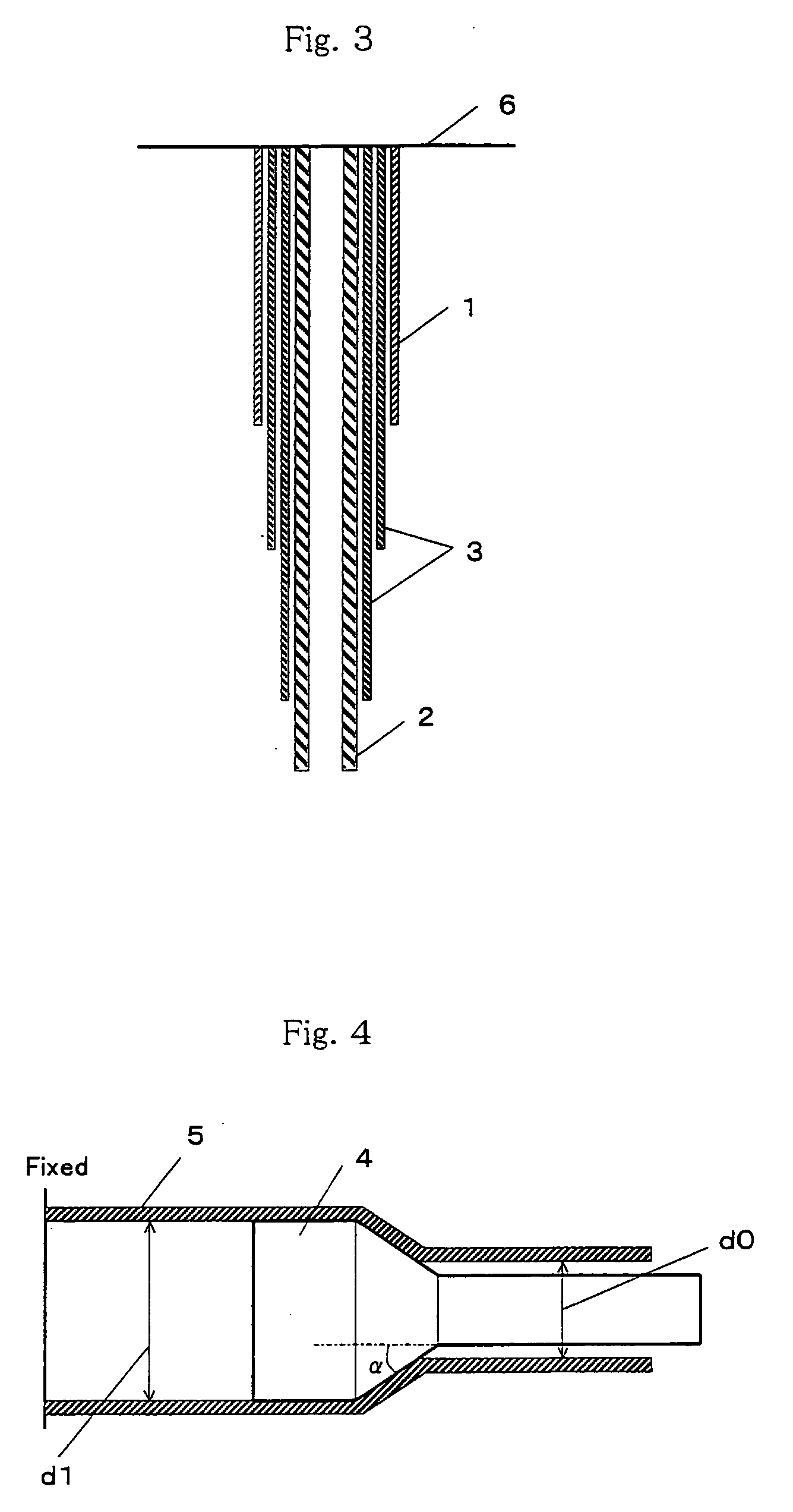Steel pipe for embedding-expanding, and method of embedding-expanding oil well steel pipe
a technology of oil well steel pipe and steel pipe, which is applied in the direction of furnaces, heat treatment equipment, and accessories for wellbores/wells, etc., can solve the problems of increasing excavation costs, embedded and expanded steel pipe has remarkably reduced the collapse resistance to external pressure in the ground, and the collapse strength of the pipe is remarkably reduced, so as to reduce the collapse strength and the collapse strength remarkably lowered
- Summary
- Abstract
- Description
- Claims
- Application Information
AI Technical Summary
Benefits of technology
Problems solved by technology
Method used
Image
Examples
example 1
[0115] Four kinds of steels, having chemical compositions shown in Table 1, were prepared, and seamless steel pipes having an outer diameter of 139.7 mm, a wall thickness of 10.5 mm and a length of 10 m were produced in the usual Mannesmann-mandrel pipe production process. Then, the steel pipes were subjected to heat treatment of quenching-tempering to make them products corresponding to API-L80 grade (yield strength: 570 MPa).
[0116] Non-uniform wall thickness ratios of non-expanded steel pipes of Steel A, Steel B and Steel C were measured by UST. After that the steel pipes were expanded by mechanical drawings with a plug inserted in the pipe. The pipe expansion ratios were three degrees of 10%, 20% and 30% as a magnification ratio on the inner diameter of the pipe.
[0117] FIG. 4 is a cross-sectional view of a plug periphery during the expansion of the pipe. As shown in FIG. 4, the pipe 5 was expanded by fixing an end of the expansion starting side and mechanical drawing of the plug ...
example 2
[0121] Using the Steel D in Table 1, a seamless steel pipe having an outer diameter of 139.7 mm, a wall thickness of 10.5 mm and a length of 10 m was produced by the same method as in the Example 1, and subjected to heat treatment of quenching-tempering. The obtained pipe is a product corresponding to API-L80 grade.
[0122] The non-uniform wall thickness profile of the steel pipe, before expanding, was investigated by UST. As shown in FIG. 7, the non-uniform wall thickness profile was obtained by measuring wall thickness at 16 points equally divided in the circumferential direction of the pipe with respect to every 10 cross sections at 500 mm pitches in the longitudinal direction of the pipe. From the wall thickness profile, the components of the eccentric non-uniform wall thickness (the first order of the non-uniform wall thickness), the second order of the non-uniform wall thickness and the third order of the non-uniform wall thickness were extracted by the Fourier analysis to obtai...
PUM
| Property | Measurement | Unit |
|---|---|---|
| Fraction | aaaaa | aaaaa |
| Fraction | aaaaa | aaaaa |
| Fraction | aaaaa | aaaaa |
Abstract
Description
Claims
Application Information
 Login to View More
Login to View More - R&D
- Intellectual Property
- Life Sciences
- Materials
- Tech Scout
- Unparalleled Data Quality
- Higher Quality Content
- 60% Fewer Hallucinations
Browse by: Latest US Patents, China's latest patents, Technical Efficacy Thesaurus, Application Domain, Technology Topic, Popular Technical Reports.
© 2025 PatSnap. All rights reserved.Legal|Privacy policy|Modern Slavery Act Transparency Statement|Sitemap|About US| Contact US: help@patsnap.com



